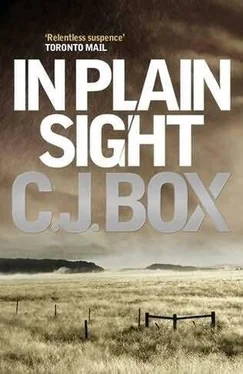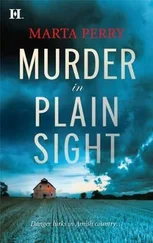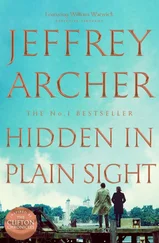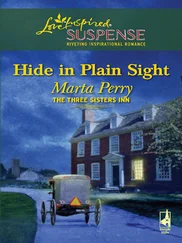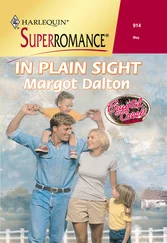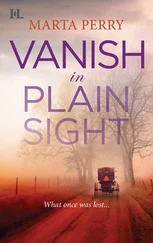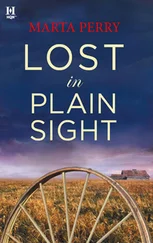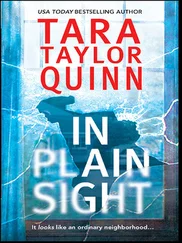“Keep on rolling,” he said again, wishing he could see the secrets and motivations of the people in the valley with the same long-distance clarity.
Instead of mule deer, he happened first on a herd of thirty pronghorn antelope grazing and picking their way in the distance across the tabletop flat of a butte. Their brown-and-white camouflage coloring, which worked for eight months of the year, failed them miserably against the pulsing green carpet of spring grass and made them stand out like highway cones.
Joe fixed his spotting scope to the top of his driver’s-side window and surveyed the pronghorn. Antelope almost always had twins, and the little ones were perfectly proportioned, despite their size, and within days were capable of running as fast as the adults. He loved to watch them play, chasing other newborns around, scampering between the legs of their mothers like shooting sparks.
Joe swung the telescope and found the lead buck. As always, he stood alone facing his herd, prepared at any moment to wade into the throng to enforce his will on them or punish transgressions. As Joe admired the buck through the scope a puff of dust and hair shot out of the buck’s neck and the animal crumpled and dropped. A rifle shot followed, pow-WHOP, the sound of a hit, echoing across the sagebrush. In the bottom of his scope view, Joe could see the buck kicking out violently, windmilling his legs in a death dance.
“Man!” Joe shouted, amazed at what had happened right in front of his eyes.
The rest of the herd ignited as one and were suddenly sweeping across the top of the butte leaving twenty-nine streams of dust that looked like vapor trails in their wake.
Angry, Joe jumped out of his pickup with his binoculars. Antelope season was four months away. Before raising the glasses to his eyes, he swept the hills, trying to see the shooter. Was it possible the poacher didn’t know the game warden was in the vicinity? No, Joe thought, the odds were totally against it. In a district of fifteen hundred square miles, the chance of his actually being there to see the kill in front of his eyes were infinitesimal. The act was a deliberate provocation, a direct challenge.
He followed the long line of three-strand barbed-wire fence that separated the public Bureau of Land Management land from the Thunderhead Ranch. The fence went on as far as he could see. But behind it-on a ridge, partially hidden by a fold in the terrain-was a light-colored pickup he didn’t recognize.
He raised the glasses and focused furiously.
The pickup came into view.
It was an older model, at least ten years old, light yellow, rust spots on the door. The description was familiar to him, but from where? He didn’t take the time to figure it out. The driver’s-side door was open, and the window was down. A rifle rested on the sill, still pointing in the general direction of the butte.
A man stepped out from behind the door and waved.
Bill Monroe.
He waved again at Joe in a goofy, come-on-y’all wave.
Then Monroe stepped away from the pickup, set his feet, and pulled out his penis: a flash of pink against blue jeans. He urinated a long stream into the dirt in front of him, then leaned back in an exaggerated way, pointed at Joe with his free hand, and Joe could read his lips as he shouted: “This is what I think of you, Joe Pickett.”
A THUNDERCLAP NOT unlike the sound of the rifle shot boomed across the breaklands followed by a long series of deep-throated rumbles. Joe could feel the temperature dropping even as he drove, as the clouds pulled across the sun like a curtain shutting out the light, muting light and shadow.
He had plunged his truck over the rise into the saddle slope of a valley in pursuit of Bill Monroe. There were no established roads that would get him from where he had seen the shooting, across the top of the butte, to the border of the Thunderhead Ranch, so Joe kept his left front tire in a meandering game trail that pointed vaguely toward Monroe’s pickup and let the right tires bounce through knee-high sagebrush. He was driving much faster than he should have, the engine straining. Maxine stood on the bench seat with her front paws on the dash, trying to keep balanced.
Damn him, Joe thought.
Joe hated poachers, and not simply because they were breaking the law he was sworn to enforce. He hated the idea of poaching-killing a creature for sport with no intention of eating the meat. Joe took poaching as a personal affront, and to see it happen this way, to be mocked by Bill Monroe in this way…
And Bill Monroe was not yet running. He was still up there, outside of his pickup, on the far ridge, outlined against the roiling dark clouds. Monroe had plenty of time and distance before Joe got there, and he was in no hurry.
Maybe he wouldn’t run at all. Maybe he would wait for Joe, and the two of them could have it out. Joe thought that sounded fine to him.
He was halfway across the saddle slope when three things happened at once:
His radio came to life, the dispatcher calling him directly by his code number, saying he was to call Director Randy Pope immediately off the air.
The check-engine light on the dashboard flickered and stayed on while the temperature-gauge needle shouldered hard into the red.
And the clouds opened up with a clash of cymbals and sheets of rain swept across the ground with such force that the first wave of rain actually raised dust as if it were strafing the ground.
BILL MONROE WAS still on the ridge, standing in the rain as if he didn’t know it was soaking him. Joe was closer now, close enough to see the leer on Monroe’s face, see his hands on his hips as he looked down at Joe climbing up the slope, aimed right at him.
A moment later, there was a pop under the hood of the engine and clouds of acrid green steam rolled out from under the pickup, through the grille, and into the cab through the air vents. The radiator hose has blown.
Joe cursed and slammed the dash with the heel of his hand. He stopped the truck and the engine died before he could turn the key.
JOE OPENED THE door and jumped out of his crippled pickup. Despite the opening salvos of rain, the ground was still drought dry; the moisture had not yet penetrated and was pooling wherever there was a low spot. The rainfall was steady and hard, stinging his bare hands.
Joe looked up the slope at Monroe.
“What’s wrong with your truck?” Monroe shouted down.
“You’re under arrest,” Joe shouted back.
“For what?”
“For killing that buck. I saw the whole thing.”
Monroe shook his head. “I didn’t kill no buck.”
“I saw you.”
“I don’t even own a rifle.”
“I saw you.”
“Your word against mine, I guess.”
“Yup.”
“I understand you’re pretty convincing when it comes to Judge Pennock,” Monroe said.
Joe felt a pang in his chest. So Monroe was well aware of the rejected search warrant.
The rain hammered the brim of Joe’s hat and an icy stream of it poured into his collar and snaked down along his backbone.
“Good thing your truck blew up,” Monroe said. “You would have been trespassing on private property.”
The fence line was just in front of Monroe, Joe saw.
Then Joe realized Monroe wanted him to come over there onto the Thunderhead, where access had been previously refused by Hank. What would Monroe have done when Joe crossed the line? What had been his plan?
IT WAS AN odd thing, how sometimes there could be a moment of absolute clarity in the midst of rampant chaos. With the rain falling hard, his vehicle disabled, the dispatcher calling for him, and Bill Monroe grinning at him from behind the fence, at least part of the picture cleared up. Portenson’s call had reminded him of something.
Читать дальше
